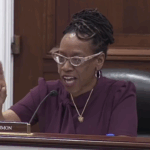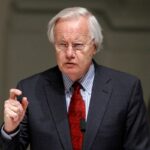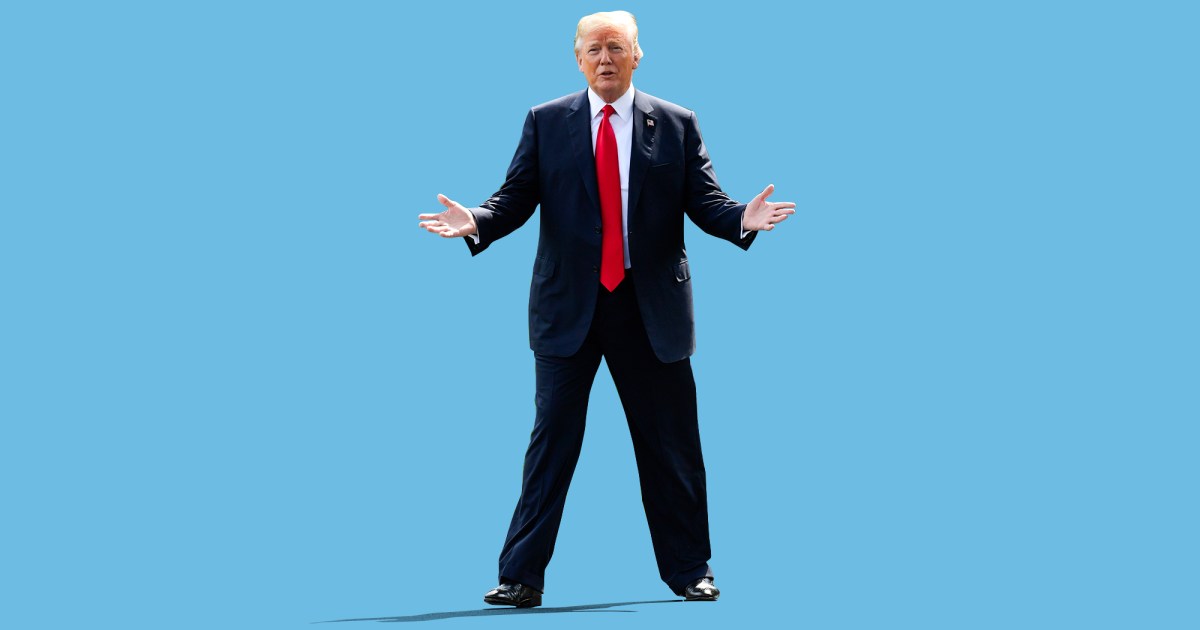Donald Trump often does not tell the truth. The intelligence community produces classified reports that are unavailable for outside evaluation. Thus, the public cannot trust what Trump and his crew say about the intelligence.
This is a fundamental problem. We cannot accept as fact what Trump, Defense Secretary Pete Hegseth, Director of National Intelligence Tulsi Gabbard or other senior administration colleagues tell us about the US military strike on Iran. It certainly caused immense damage. But what was the impact? Did it end Iran’s nuclear program or merely set it back? If the latter, is that for months, a few years, or longer? This a key question. Yet whatever Trump says about this will be suspect—as is true for most topics. His administration cannot be considered a reliable source for anything, especially military matters, for which the truth can be hazy in the best of times.
In the run-up to the bombing raid, Trump and his gang demonstrated that they were willing to play politics with intelligence. In March, Gabbard testified to Congress that Iran was not pursuing a nuclear weapons program—a finding that was included in the intelligence community’s annual worldwide threat assessment. Yet last week Trump declared that Iran was close to a nuclear weapon and that he didn’t care what Gabbard (and, by extension, the entire intelligence community) had concluded.
Gabbard quickly showed that her allegiance is to Dear Leader, not her own team, by asserting that she and Trump were on the same page. Amid Washington speculation that Trump was not happy with Gabbard, she placated him rather than represent the truth as the intelligence agencies saw it. This sent a message: The intelligence system is rigged.
Throughout this episode, Trump has conveyed—yet again—that he doesn’t care about facts.
When Hegseth, following the raid, was asked whether new intelligence had come in since Gabbard’s March testimony, he ducked the question. That seemed to mean no. On Meet the Press, Vice President JD Vance said he and Trump had faith in the intelligence assessments: “Of course we trust our intelligence community, but we also trust our instincts.”
That is, we will trash assessments that undermine our policy desires.
And as we’ve seen for a decade now, Trump is an inveterate liar, highly erratic. He indicated last Friday that he was seeking a negotiated settlement, and then he launched the attack on Saturday. On June 17, he told reporters on Air Force One, “We’re not looking for a ceasefire [in the Israel-Iran war]. I didn’t say I was looking for a ceasefire…We’re looking for a real end, not a ceasefire. Something that would be permanent, giving up entirely.” But when an uneasy ceasefire came, he hailed the development and claimed credit for it.
At one point, he urged the evacuation of Tehran, as if the United States would be bombing the city. After Vance and Secretary of State Marco Rubio insisted regime change was not on the agenda, Trump, in a social media post, hinted it might be. Trump also proclaimed the bombing raid resulted in the total “obliteration” of the Iranian nuclear program; Gen. Dan Caine, chairman of the Joint Chiefs of Staff, reported the morning after only that there had been “extremely severe damage.” (On Thursday, Rafael Grossi, the head of the United Nation’s International Atomic Energy Agency said the strikes rendered the centrifuges at the Fordow site “no longer operational” but noted it would be “too much” to assert that the nuclear program was “wiped out.”)
The culture of lying that imbues Trumpworld has dangerous ramifications. The US public cannot believe statements from him and his top officials on vital national security matters, and members of Congress ought not trust the briefings they receive from this administration. (A military briefing for senators and representatives was scheduled for Thursday, but news reports noted the White House would be limiting the classified information it intended to share.) And given how the Trump crew operates, intelligence analysts ought to fear producing intelligence that contradicts Trump’s pronouncements and policies—a career killer. (During his first presidency, Trump complained mightily about intelligence reports that said Russia had continued interfering in US elections after attacking the 2016 election to help him win.)
Trump’s ever-shifting stances and false statements are a national security threat. They render him less effective as a negotiator with other nations. Allies and foes cannot rely upon his word. He often makes hollow threats. (He told Putin he had two weeks to demonstrate he was serious about ending his war against Ukraine. Putin did nothing; Trump said nothing.) And if Trump pledges to negotiate, well, maybe he won’t. Initially skeptical of attacking Iran, he reportedly changed his mind after watching Fox News segments celebrating Israel’s strikes on Tehran and encouraging US involvement.
Intelligence is often a political matter. So is war. And the Trump administration is hitting new heights in this regard. At a Pentagon press briefing Thursday morning, Hegseth started off with a long diatribe against the media, complaining it was more interested in tearing down Trump than accurately reporting the glories of the Iran assault.
Hegseth singled out reporters—including one from Fox, where he used to be a commentator—and accused them of seeking to undermine the nation. He was behaving more like a minister of propaganda than the civilian head of the military. Asked about whether Iran had removed highly enriched uranium from the Fordow facility before the bombing, he sidestepped the matter.
There’s plenty of precedent for abuse of intelligence. President George W. Bush and Vice President Dick Cheney manipulated and politicized the intelligence in the run-up to their misguided 2003 invasion of Iraq. (I co-wrote a whole book on that.) But Trump and his aides have gone much further.
The Bush-Cheney administration toiled hard to present a case for war. They cherry-picked intel, ignoring inconvenient findings. They spent months manufacturing arguments full of purported facts and conclusions from the intelligence community about Saddam Hussein’s supposed weapons of mass destruction and ties to al Qaeda. It was all bunk. But it was important to them to convince he public that they were acting rationally and responsibly on the basis of solid intelligence.
Trump felt no such obligation. He dismissed the intelligence assessments and then shifted his stance back and forth without tying it to any new intelligence. He prematurely declared the total annihilation of Iran’s nuclear program. Throughout this episode, he has conveyed—yet again—that he doesn’t care about facts. War is just another chapter in his reality-TV presidency, in which reality takes a backseat to the demands of the Trump Show.















